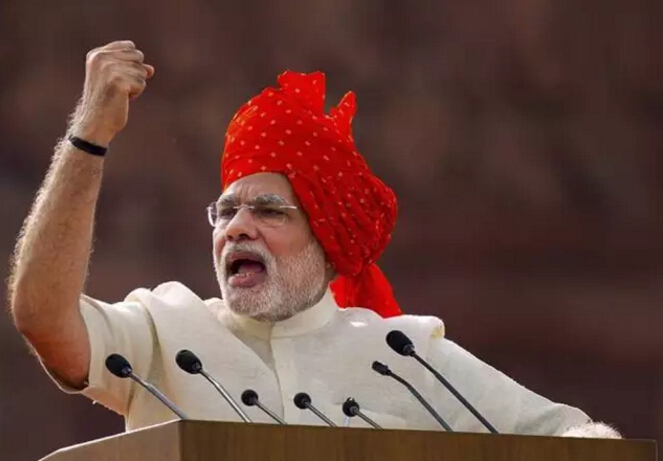Modi's personal charm crucial to India's long-term development
- By Long Xingchun
 0 Comment(s)
0 Comment(s) Print
Print E-mail Global Times, June 7, 2016
E-mail Global Times, June 7, 2016
|
|
|
Since Modi took office, government efficiency has largely improved. [File photo/Global Times] |
A 15-day program starting May 26 is being held in India to mark the second year of the Narendra Modi government, where the ruling Bharatiya Janata Party (BJP) showcased its achievements to the people.
Meanwhile, the opposition Indian National Congress Party (INC) criticized Modi for his economic failures and claimed credit for India's rapid development while blaming the BJP for the decreased growth in the agricultural sector, which dropped from 4.2 percent in 2013-14 (INC's term) to -0.2 percent in 2014-15. Some institutes even carefully examined whether Modi has fulfilled his election promises.
India's rapid economic growth is indeed based on the previous government's efforts. However, as the global economy slows, Modi has played a vital role in maintaining a relatively high growth rate. In order to evaluate Modi's performance, greater focus should be placed on his long-term influence on India's national development rather than specific figures.
India is renowned for its glorious history, but yet lags behind the West, China and other East Asian nations. Despite its outstanding economic achievements in the recent 20 years, complex sentiments are still pervasive in India.
Since Modi took office, government efficiency has largely improved. Tax and labor law reforms have also accelerated. This has boosted the confidence of businessmen and the public, assuring them that India is likely to become a developed nation and to realize the "Indian Dream."
While Modi has limited power as a prime minister under a parliamentary democracy, his personal charm has played a significant role.
Modi won the parliamentary election with his outstanding political performances in Gujarat, making economic development a key topic in India's politics. While important to previous governments as well, India's politics have largely been affected by class, religion, ethnicity and other social contradictions.
In the past, a successful election campaign largely depended on the manipulation of social conflict rather than economic performance. Modi has changed this woe by directing the focus of local governments from political conflict to economic development.
Economics will play a larger role in future elections. This has won popularity among Indian citizens, and changed India's political culture to a large degree.
Modi has also boosted the international communities' confidence in India. Modi actively promotes economic reform, enhances infrastructure, and creates favorable conditions to attract foreign investments.
When abroad he meets with local entrepreneurs and visits their companies. He even personally meets with foreign entrepreneurs seeking to do business in India.
In 2015, India attracted $63 billion in direct foreign investments, exceeding China as the largest destination for foreign investment. This has laid a solid foundation for India to maintain long-term and high-speed economic growth.
Modi's diplomacy has created a favorable climate for India's development. As India continues to address its conflicts with neighboring countries, Modi has promised to prioritize peripheral diplomacy in his election campaigns.
He invited the leaders of South Asian Association Regional Cooperation to his inauguration, chose Bhutan for his first foreign trip and has since visited all South Asian neighbors, with the exception of the Maldives, in his first 19 months.
During Modi's term, enclave conflicts with Bangladesh were resolved and a pro-India government was established in Sri Lanka. Although India may be wrong in blocking Nepal, it has not resulted in catastrophic consequences. Modi's visit to Pakistan has demonstrated his wisdom and sense of responsibility.
Despite US efforts to draw India over to its side, the Modi government turned down requests for joint patrols in the South China Sea and refused to establish an Asian NATO with the US, Japan and Australia. This has stabilized the China-India relationship, and demonstrated that Modi is a mature statesman rather than a speculative politician.
In the meantime, India has maintained a close relationship with the US, EU, Japan and the ASEAN countries, playing an active role in multilateral arenas.
However, Modi's popularity has led to overconfidence among some radical Hindu nationalists seeking to establish Hinduism as the only religion in India. If the Modi government remains hands-off on the issue, it may result in larger-scale domestic conflicts and social unrest, striking a blow to the nation's economic development.
The BJP and Modi should take lessons from the party's defeat in 2004 despite India's high-speed economic growth. The current government should cherish its current situation.




Go to Forum >>0 Comment(s)